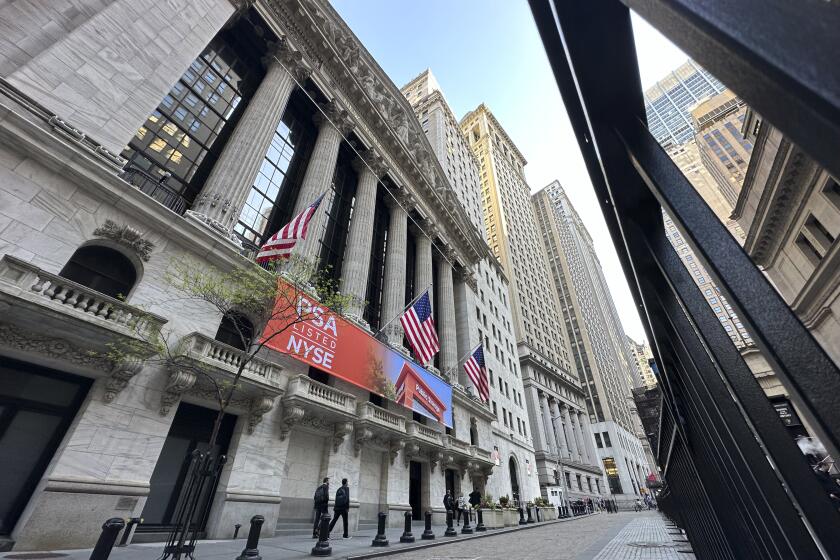Doctors Accused of Insider Trading
Federal regulators have accused several Anaheim physicians and others of trading on insider information from researchers involved in developing an experimental drug to treat the liver ailment hepatitis B.
The Securities and Exchange Commission, in two complaints filed in federal court this week, accused the traders of selling stock in two companies whose futures hinged on the success of Thymosin, after learning that clinical trials failed to prove that the drug was effective in treating hepatitis B. Stocks of both companies plummeted after the trial results were made public in April 1994.
The SEC case is the first alleging insider trading on information from clinical researchers. “It’s meant to be a warning to the kinds of people that do this research that you can’t do this,” said Thomas Newkirk, the agency’s top enforcement official.
The SEC said an Anaheim physician, Dr. Rangarao Panguluri, learned that the drug wasn’t performing as expected while he worked at Wayne State University’s medical laboratory in Detroit. He and the lead researcher, Dr. Milton Mutchnick, a Wayne State professor, then alerted relatives, friends and close associates, according to the complaints.
The SEC said inside traders avoided about $300,000 in losses by unloading shares of SciClone Pharmaceuticals Inc. of San Mateo, which was licensed to sell the drug, and Alpha 1 Biomedicals Inc. of Bethesda, Md., which was developing it.
Lawyers said Thursday that Mutchnick, his wife, Rene, and several others have settled a case filed against them in a Washington federal court. The Mutchnicks, who didn’t buy or sell the stock themselves, allegedly tipped off relatives and friends who did. A lawyer for the Mutchnicks said the couple agreed to settle the case for $163,000, but admitted no wrongdoing.
In the related case, filed Wednesday in Los Angeles federal court, the government accuses Panguluri of leaking information that got around to three Anaheim physicians, Ravindra Alapati, Ravi Makam and Syam Gaddam, and Gaddam’s wife, Gowtami. Alapati is also accused of making an $8,000 profit by selling short--selling stock that wasn’t owned in anticipation of buying the shares later at a lower price. Panguluri, Alapati and Gaddam now practice medicine together.
The agency also alleged that Alapati, Gaddam and Makam gave phony alibis and enlisted the help of others in an attempt to cover up the alleged inside trading.
A lawyer for Panguluri, Alapati and the Gaddams said none of the individuals broke the law and denied the allegation regarding phony alibis. A lawyer for Makam couldn’t be reached.
Thymosin is sold in China, Singapore and the Philippines as a hepatitis B treatment. It is expected to be tested for treating another liver ailment--hepatitis C--in the U.S. this year, said Donald Sellers, SciClone’s chief executive.
He said that while both diseases can lead to liver cancer, a patient stricken with hepatitis C stands a far greater risk of developing cancer than one with hepatitis B.






